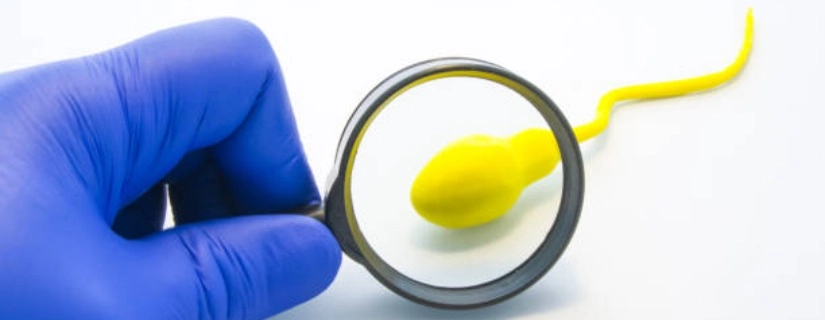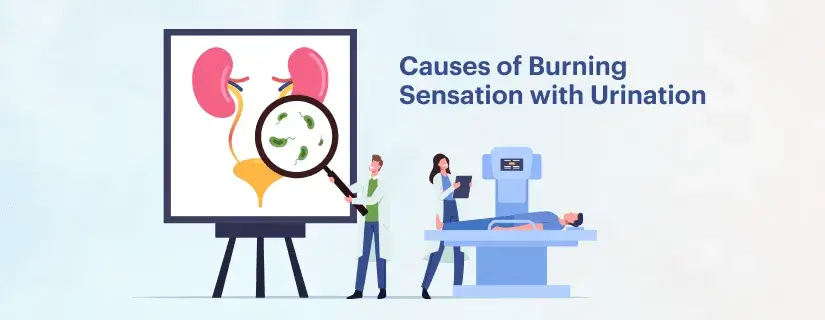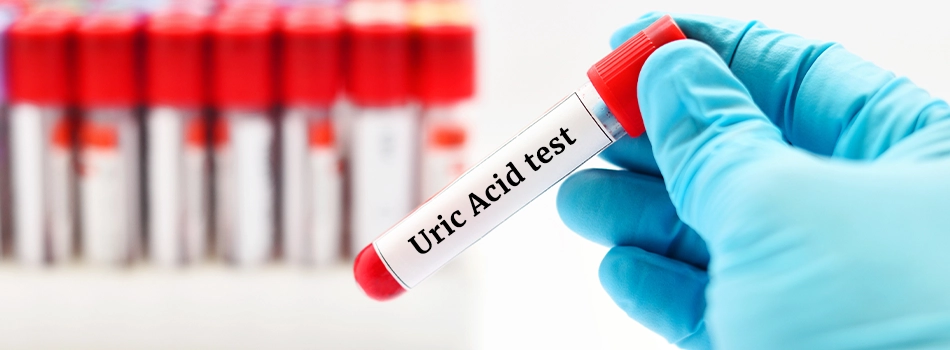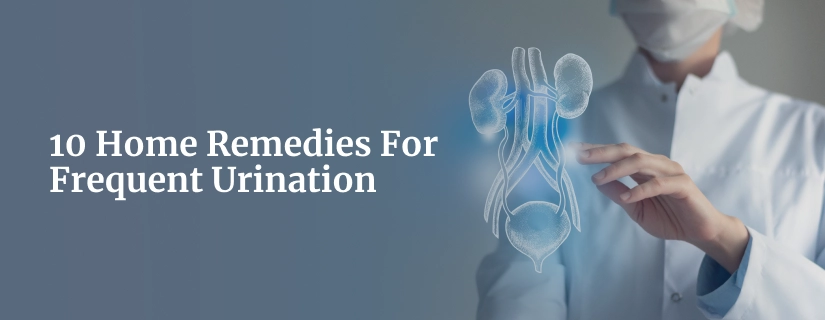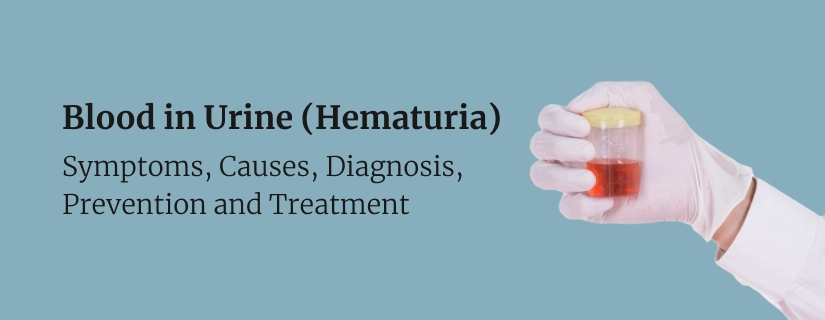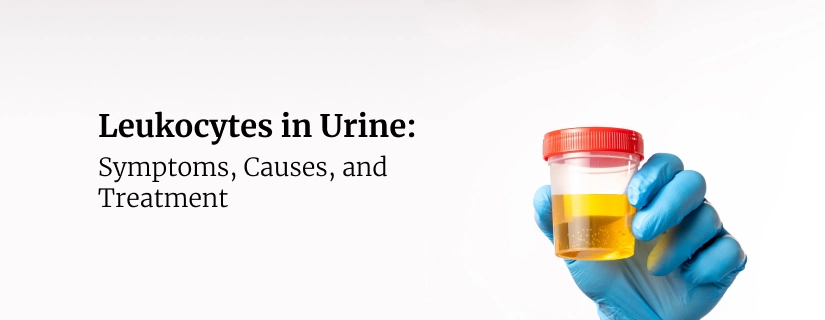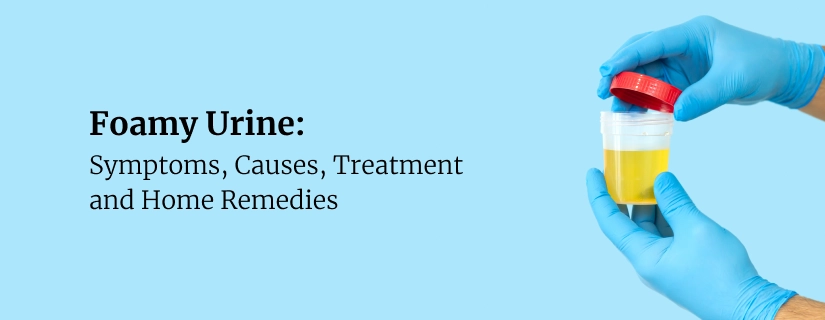-
Doctors
-
Specialities & Treatments
Centre of Excellence
Specialties
Treatments and Procedures
Hospitals & Directions HyderabadCARE Hospitals, Banjara Hills CARE Outpatient Centre, Banjara Hills CARE Hospitals, HITEC City CARE Hospitals, Nampally Gurunanak CARE Hospitals, Musheerabad CARE Hospitals Outpatient Centre, HITEC City CARE Hospitals, Malakpet
HyderabadCARE Hospitals, Banjara Hills CARE Outpatient Centre, Banjara Hills CARE Hospitals, HITEC City CARE Hospitals, Nampally Gurunanak CARE Hospitals, Musheerabad CARE Hospitals Outpatient Centre, HITEC City CARE Hospitals, Malakpet Raipur
Raipur
 Bhubaneswar
Bhubaneswar Visakhapatnam
Visakhapatnam
 Nagpur
Nagpur
 Indore
Indore
 Chh. Sambhajinagar
Chh. SambhajinagarClinics & Medical Centers
Book an AppointmentContact Us
Online Lab Reports
Book an Appointment
Consult Super-Specialist Doctors at CARE Hospitals
Epithelial Cells in Urine: Types, Causes, Symptoms and Treatment
Updated on 1 March 2024
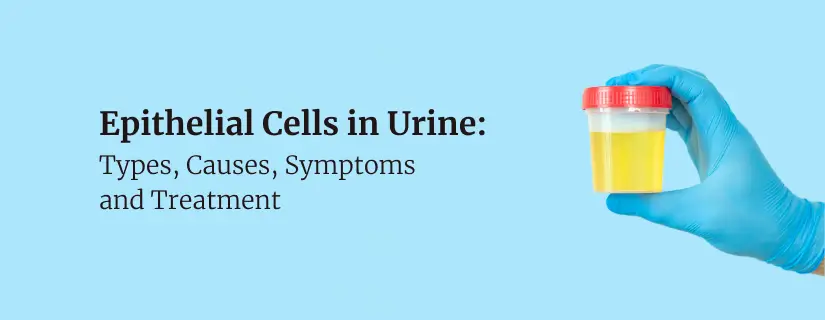
When you think about urine, you might assume it consists solely of waste products from your body. However, there is more to urine than meets the eye. Epithelial cells, a crucial component of urine, provide valuable insights into your urinary health. Their presence, types, and quantities offer insights into various pathologies, including infections, inflammation, and renal disorders.
What are Epithelial Cells in Urine?
To understand the significance of epithelial cells in urine, it's essential first to grasp what these cells are. Epithelial cells are specialized cells that line various organs and structures in the body, forming a protective barrier. They also line the urinary tract, including the kidneys, ureters, bladder, and urethra. Typically, a small number of epithelial cells may be present in urine, but when their levels become abnormal, it can indicate an underlying health issue.
Types of Epithelial Cells in Urine
Epithelial cells in urine can be of three main types: squamous, transitional, and renal tubular.
- Squamous epithelial cells are flat, scale-like cells typically present in the urethra.
- Transitional epithelial cells are larger and rounder and line the urinary bladder and ureters. These are more common in older adults.
- Renal tubular epithelial cells are cuboidal or columnar in shape and originate from the renal tubules in the kidneys. An increased number of these cells in urine might indicate kidney disorder.
Causes of Epithelial Cells High in Urine
Various factors can cause increased epithelial cells in urine. One primary cause is a urinary tract infection (UTI). When bacteria reach the urinary tract, they can cause inflammation and lead to shedding epithelial cells into the urine.
Other possible causes of epithelial cells in urine include kidney infections, bladder infections, kidney stones, and certain kidney diseases.
In some cases, high levels of epithelial cells may also result from contamination while collecting a urine sample.
Symptoms of Epithelial Cells in Urine
Epithelial cells in urine may not always cause noticeable symptoms. However, underlying conditions contributing to an abnormal number of epithelial cells can manifest with specific symptoms. For example, a UTI associated with increased epithelial cells may lead to various symptoms, such as frequent urination, pain or burning sensation during micturition, cloudy or foul-smelling urine, and pelvic discomfort. Pay attention to any changes in urinary habits and consult a healthcare professional if you experience persistent symptoms.
Treatment for Epithelial Cells in Urine
The treatment for epithelial cells high in urine depends on the underlying cause. If a urinary tract infection is detected, your doctor may prescribe antibiotics to remove the infection and reduce the presence of epithelial cells.
If kidney stones or other kidney-related issues are the cause, your doctor may recommend specific treatments targeting these conditions.
It's essential to follow your doctor's advice and complete the prescribed epithelial cells in urine treatment to ensure the proper resolution of the underlying problem.
When to Consult a Doctor
If you notice an increased presence of epithelial cells in your urine, it is advisable to consult a doctor. While it may be a benign condition in some cases, it can also indicate an underlying health issue that requires medical attention. Additionally, if you experience any accompanying symptoms, such as pain, discomfort, or changes in urinary habits, you should seek medical advice promptly. Early detection and intervention can help keep your urinary system healthy and prevent potential complications.
Conclusion
Epithelial cells in urine play a significant role in providing valuable insights into your urinary health. Monitoring the presence and levels of epithelial cells can help detect and diagnose underlying conditions such as urinary tract infections, kidney stones, and kidney diseases. Consult a healthcare provider if you observe any changes in your urine, such as increased epithelial cells or accompanying symptoms. By understanding the role of epithelial cells in urine, you can take proactive steps towards maintaining your urinary health.
FAQs
1. What does it mean if increased epithelial cells are in urine?
Increased epithelial cells in urine can indicate an underlying medical condition, such as a urinary tract infection, kidney infection, bladder infection, or kidney disease. Therefore, consult a healthcare professional for further evaluation and appropriate treatment.
2. Are epithelial cells in urine a cause for concern?
While a small number of epithelial cells in urine is normal, an increased or abnormal amount may indicate an underlying problem. Therefore, you should consult a doctor if you notice changes in your urine or experience accompanying symptoms.
3. How are epithelial cells in urine treated?
The treatment for epithelial cells in urine depends on the underlying cause. If a urinary tract infection is detected, a doctor may suggest antibiotics. Other conditions, such as kidney stones or kidney diseases, may require specific treatments targeted at those conditions.
4. Can contaminated urine samples affect epithelial cell levels?
Contamination during the collection of a urine sample can affect the levels of epithelial cells. Therefore, collecting a clean and uncontaminated urine sample is crucial to evaluate epithelial cell levels accurately.
5. What are the symptoms associated with increased epithelial cells in urine?
Increased epithelial cells in urine may not cause specific symptoms on their own. However, underlying conditions that contribute to abnormal epithelial cell levels, such as urinary tract infections, can manifest with symptoms such as frequent urination, pain or burning during urination, cloudy or foul-smelling urine, and pelvic discomfort.

ENQUIRY FORM
SELECT CATEGORIES
-
Neurosciences (16)
-
Neurology (37)
-
Neurosurgery (14)
-
Orthopaedics (48)
-
Oncology (33)
-
Obstetrics and gynecology (52)
-
Pulmonology (23)
-
Urology (20)
-
Nephrology (13)
-
Psychiatry (7)
-
Dietetics and Nutrition (111)
-
General Medicine (63)
-
Cardiac Sciences (32)
-
Vascular & Endovascular Surgery and Interventional Radiology (15)
-
Gastroenterology (46)
-
Endocrinology (23)
-
Plastic Surgery (10)
-
Critical Care Medicine (5)
-
COVID-19 (16)
-
Dermatology (16)
-
Emergency Care (1)
-
Ophthalmology (4)
-
Pediatrics (14)
-
Laparoscopic and Bariatric Surgery (8)
-
ENT (15)
-
Kidney Transplant (1)
-
Liver Transplantation and Hepatobiliary Surgery (5)
-
General Surgery (3)
-
Internal Medicine (5)
-
Medicine Information
Urinary Retention: Symptoms, Causes, Diagnosis and Treatment
Cloudy Urine: Causes, Symptoms and Treatment
YOU MAY ALSO LIKE
RECENT BLOGS
-

Preterm Birth (Premature Birth): Symptoms, Causes, Treatment and Prevention
13 May 2025
Read More
-

Rotablation Angioplasty: Benefits, Treatments, And Recovery Time
9 May 2025
Read More
-

What Is The Difference Between IUI and IVF?
9 May 2025
Read More
-

Venous Malformations: Causes, Symptoms, and Treatment
30 April 2025
Read More
-

Varicose Vein Foam Sclerotherapy: Treatment, Benefits, and Procedure
30 April 2025
Read More
-

Radiofrequency (RF) Ablation Treatment for Varicose Veins: Know More
30 April 2025
Read More
-

Varicose Vein Sclerotherapy: Treatment, Benefits, and Procedure
30 April 2025
Read More
-

Varicose Vein Endovenous Laser Ablation: Procedure, Benefits, Risks
30 April 2025
Read More
Have a Question?
If you cannot find answers to your queries, please fill out the enquiry form or call the number below. We will contact you shortly.



